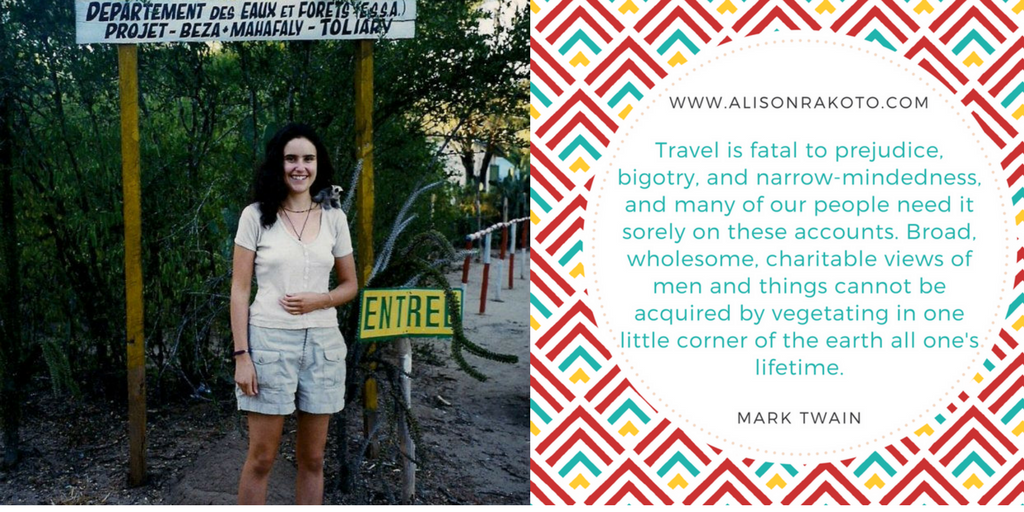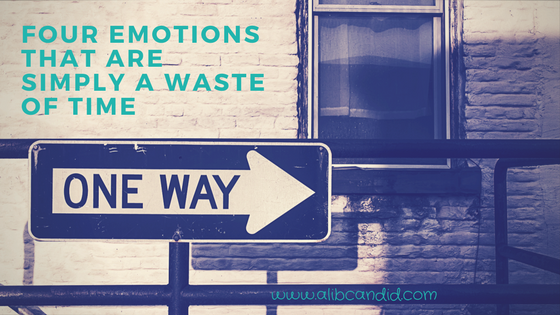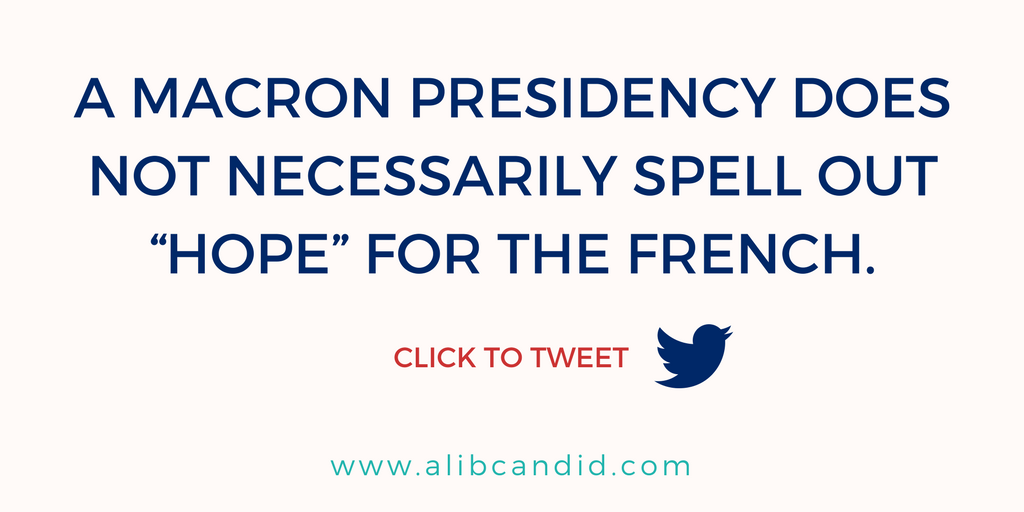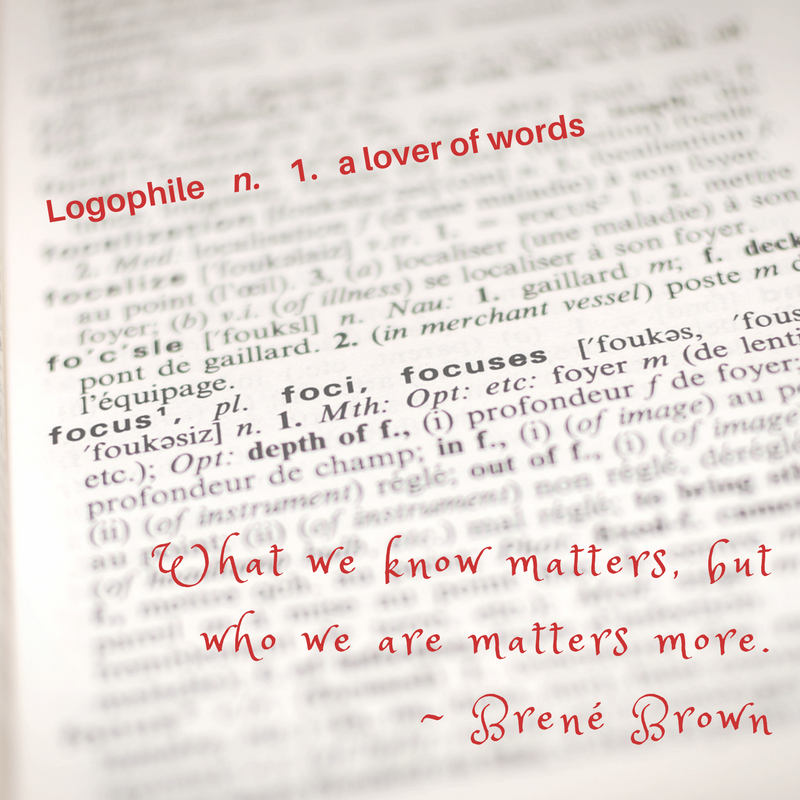A tale of Language and Privilege
How do you define indigenous?
Each of us is a product of our background. In life, we often look for ideas and people that reinforce the way we think and thereby validate our values and beliefs. As a kid, my mom shared office space with several other women at her university. Together they worked on gender and diversity issues in education. The women my mother worked with self-identified as Chicana, Black, and Native American. The result is that from an early age, despite being a little white girl from a Colorado Ranching family, my exposure to other experiences and cultures started early. At the time, I didn’t know the difference; I simply saw strong, intelligent and passionate women who inspired me to be my own person.
Recent events and discussion about white privilege have led me to understand how this inclusive and intersectional experience of my childhood prepared me to be open to diverse ideas and probably led to my decision to study abroad in Madagascar in 1998, which is where I met my husband. This “tale of Language and Privilege” is an exercise in thinking, not an argument for or against the usage of the word indigenous. I invite you to read it, to think and to discuss.
De-Nile is a River in Egypt
This is a post is best read slowly and thoughtful with a cup of coffee or tea. When you finish take a moment to sit a enjoy and to be followed by a long moment of contemplation.
My look at the word “indigenous” is a look at semantics and language. At meaning and usage. At language and privilege.
Specifically, I would like to show you how I transitioned from seeing the word “indigenous” as a conscientious word to describe native peoples, to a word that instead highlights a history of White Privilege and Colonial Imperialism. Although not everyone will agree on intent, the way that Indigenous is generally applied to populations around the world also implies “primitive.”
This subject has been brought to us originally by a discussion I had a few years ago with my husband. When our discussion started, I was very very lost on a long ride down the River De-Nile. My guess is that most of my readers are probably also bobbing along on a raft that is not as sturdy as they once thought…
This conversation originally came to my attention after a discussion I had a few years ago with my husband. When our discussion started, I eventually found myself very very lost on a long ride down the River De-Nile. My guess is that most of my readers are probably also bobbing along on a raft that is not as sturdy or directed as they once thought…
 My husband and I grew up several thousand miles apart, but in families that value respecting individuals and cultures for their face value. We don’t judge. We walk our own path.
My husband and I grew up several thousand miles apart, but in families that value respecting individuals and cultures for their face value. We don’t judge. We walk our own path.
He grew up in the Antanosy region of Madagascar. I grew up in the State of Colorado, in the United States. Despite the geographic distance in our upbringing, it is often surprising how much we think alike. At the same time, we have had very different life experiences. Sometimes these experiences mean that we don’t always see eye-to-eye. Sometimes these experiences mean that we have experienced very different things. Racism. Sexism. And, the vestiges of Slavery and Colonialism.
Colonialism
Madagascar is just off the tip of South Africa and is on one of the trade routes from Europe to India. As a consequence, for many years ships with slaves, pirates, and various individuals intent on colonizing or just taking a break (for a few years or twenty), stopped off to settle and to terrorize in my husband’s hometown of Tôlanaro. A town that has two names, one used by the locals and one used by foreigners and given to it by the French (Fort Dauphin).
Because of the already diverse cultural heritage of the Malagasy, the people of the Antanosy region are long accustomed to the idea that not everyone looks the same. Because of the passing of Indian (from India), Asian, Middle Eastern, and East African peoples, walking down the street you can see people that are clearly of mixed heritage. Blue and green eyes, deep pool black eyes, tufts of blond hair, straight hair and curly hair can be found.
Certainly, the Antanosy tribe has a particular look, as do each of the 18 tribes in Madagascar, but historically, the Malagasy have not really been caught up in this idea of race. Foreigners are called Vazaha, which translates to “stranger” or “foreigner,” but not in a derogatory sense. Malagasy people simply consider themselves Malagasy rather than get overly caught up in origins and shades of skin color.
Growing up, my husband knew that some people were foreigners, but he didn’t know that racism existed. Some people were Vazaha, but people were people. And guests were to be honored in your home. Growing up in Tôlanaro, his parents were particularly interested in the foreigners that came to town, inviting them into their home, and learning as much as they could from the outside world. As far as my husband knew, guests and visitors were to be honored. And the color of your skin or the birthplace or birth status of your parents had little if anything to do with your personal value.
And then he moved to France.
In the last 15+ years, my husband has become well versed in racism, white privilege, imperialist thought, and every other repulsive thing that goes alongside. This essay is however not a pity party and I won’t get all the details, but I do want to share with you just enough that you can see how moving from Madagascar to France, changed his world view, forever.
I also want you to think about what his experience might have been if he had been white (say British or American white). Or if he had been a Black American coming to France. Let’s note during all of this that my husband has passed down through his family, French Nationality, so when arriving in France, his legal status never has been that of an immigrant. He arrived in France, legally, French.
Language and privilege: American versus African
When I was home in Colorado a few months ago, I had the honor of joining my mom’s book club. The members had just read a book by a contemporary Black American Author. He, like so many other Black Americans traveling to France (particularly Paris), thinks the French are not really racist because as Black Americans, they don’t experience the same racism they experience in the US. If you are reading this and you are a Black American, I want to you to think twice about what you experience in France.
For example, if my husband dresses in jeans, flip-flops, and an American flag t-shirt, and he speaks English, he can get into a fancy cigar club on the Champs Elysees, no problem because the doorman thinks he is AMERICAN. If he returns with his Senegalese friend (who parks a Maserati and Aston Martin in his garage in Miami) dressed in a suit jacket and nice jeans, but speaking French, they will be turned away from the same club, because they don’t meet the “dress code.”
In other words, they are guilty in the eyes of the doorman of being African and not French or American. Being rich doesn’t even make a difference, which is surprising to an American. Poor Americans rank higher than Rich Africans and French Africans in France. Ponder that.
Imperialism (usually White Capitalist Occidental People’s superiority complex)
Americans (both black and white) are known in France to be hard workers, but people of more recent African heritage (immigrants and born French alike) are not. Many white French consistently and publicly espouse the view of Africans as lazy. As uneducated. My nieces and nephews who attended a French school in the Seychelles arrived in France confronted by the assumption that they would be behind.
A few months after my arrival in France, I attended a CV workshop, on the recommendation of the French Employment office. The white French woman running the workshop started off by asking us to introduce ourselves. When I introduced myself as an American the woman responded, “Great! You shouldn’t have a problem getting a job, everyone knows that Americans are hard-workers, unlike Africans….” Um. Um. Ok. So Americans may be loud and impolite, but we work hard…
Politically Correct
The aftershocks of colonialism and the imperial point of view, also continue to ripple through the United States. I grew up in Colorado. My mom’s family had been homesteaders around the turn of the century (1900). I grew up proud of my heritage and my family’s work ethic (I still am. Cowboys and Cowgirls are to be respected). We were tough, proud people.
As a child and as a young adult, road-trips often included visits to regional museums, which in an attempt at Grace, often focused on the people who had lived in the area before white (and black) settlers came to the region. Boulder had been home to the Arapahoe Indians and numerous streets, neighborhoods and even towns (Niwot) are named after local leaders and tribes. One of my favorite childhood storybooks was about Sacajawea and I knew plenty about the history of the Native Americans or American Indians that had lived in the region.
Had lived.
Museums cover the past. History is a study of the past. My experience (and I assume that of the majority of white and black Americans) was as though Indians were mythical romantic creatures of the past. We studied them in school. We visited heritage sites and museums. When I traveled to France, I was asked if Indians really wore headdresses and rode horses. My AP US History textbook (you know the same one that a conservative school board in Jefferson County, CO tried to ban because it is too LIBERAL) had a section titled the “Noble Savage.”
We studied dead Indians, but we never studied living ones. Well, I studied them, a bit, as part of my Unitarian Universalist 9th Grade-trip. We spent 10 days between the Navajo and Hopi Nations in New Mexico and Arizona. We stayed with homestay families. We took walks. We visited the longest operating Trading Post in the United States. We also visited the longest inhabited village in the Americas. Old Oraibi.
Maybe it was my own naivete, but the trip was still more like a trip to the past. I didn’t really stop to think about the separation of living American Indian society from mainstream (primarily white) American society. The people I met seemed more like ghosts from the past than living people. I was disconnected and I didn’t stop to consider what it must be like to be a First American, living amongst the vestiges of colonization. Getting up each morning and stepping out to be a part of “American” society.
The People
I had a dear childhood friend with whom I spent hours playing after school. Our mothers were friends and had offices in the same building at the University of Colorado. At some level, I knew she was Indian, Navajo to be precise. When I was about 10 or 11 years old, she told me that the Navajo’s true name was actually “Diné” and that it meant “the people.” Navajo was actually a name given the tribe by an opposing tribe. I don’t recall it’s meaning, but it is not a complimentary name.
After this, for many years, in fact, I tried using the name Diné, but just about nobody, outside of people from the Four Corners region, has ever recognized the term. Many people, to my surprise, are not really even familiar with the term Navajo, and yet the Diné is one of the largest tribes remaining in the USA (of the 560+ that are recognized).
Despite our friendship, I never realized the implication of our diverging backgrounds until my husband and I started to discuss the word Indigenous. I frankly never thought to ask my friend about her experience growing up in Boulder. Never. I may have been raised in an open-minded, politically correct family, but I was still the recipient of white privilege and I had no reason to consider that her childhood experience was any different from mine.
Indigenous
I don’t remember how the subject came up, but I argued my point valiantly, for probably a week or more, before I finally saw it from my husband’s point of view. Growing up, I had been introduced to the terms Indian, American Indian and Native American. At the time indigenous referred to what I perceived to be semi-wild and innocent people still living in the bush in Australia, the Amazon, various islands or even parts of Africa. Aborigines. Bushmen.
And then I took a trip to British Columbia and went to the Royal Museum and I was astounded at the exhibit on Indigenous Peoples. As a student of Anthropology, I was in awe. Wow! I thought that the use of indigenous to describe Native Americans or American Indians was magnificent. Of course in ecology or plant biology, we talk about indigenous plants, so what better word, to call native peoples than “indigenous?” Or so I thought.
And then I took a trip to British Columbia and went to the Royal Museum. The museum had an in-depth and thoughtfully done exhibit on Indigenous Peoples. As a student of Anthropology, I found myself in awe and I left with a new perception and understanding of the word indigenous.
No longer did “we” need to worry about what “Native” and “American” meant, we should simply follow the step of the Canadians and call Native Americans or American Indians instead “indigenous peoples.” Of course in ecology or plant biology, we talk about indigenous plants, so what better word, to call native peoples than “indigenous?” Or so I thought.
And so, for the next 15 years or so, I proudly called Native Americans, “Indigenous peoples,” when I referred to them in conversation. Just as I did when talking about Pacific Islanders or the Kung! and others who suffered under the invasive regimes of Occidental Colonialism. Until that fateful day, in which my husband said, don’t use that word. I hate that word. “Indigenous” is a dirty, dirty, and demeaning word.
It gets complicated: implications of usage
I proudly paraded my open-mindedness until that fateful day, in which my husband said: “Don’t use that word. I hate that word. ‘Indigenous’ is a dirty, dirty, and demeaning word.” What? How? Why?
I tried to argue. I told my husband all the ways my usage of “indigenous” in fact demonstrated an open-minded and respectful usage. He told me I had a serious case of white-privilege. I was shocked. I was outraged. My own husband telling me — ME! — of all people that I was practicing imperialism in my speech absolutely scandalized me. And then I let it sit. And I started to think. And I started to question.
I felt feelings of shock and outrage. How could my own husband tell me — ME! — of all people that my speech and my thought process demonstrated my privilege and embraced imperialism. I felt scandalized. And then I let it sit. And I started to think. And I started to question. And I saw my privilege.
Think about the following countries and list off the ones which you personally think of supporting populations of indigenous peoples:
Japan
Norway
United Kingdom
India
United States
Egypt
Denmark
New Zealand
Australia
Korea
Germany
France
Zimbabwe
Egypt
Israel
What qualifies a group of people as indigenous? Why have “indigenous” populations failed to embrace certain or many aspects of so-called “modern” society? What is the difference between a poor developing population and an indigenous population? The lines may not be clear cut, but hopefully, you can see what I am trying to demonstrate.
Why don’t we study “indigenous Koreans?” Or “indigenous Norwegians?” Why is it that the Maori are an “indigenous tribe,” but the Danish people are just…Danes? As an adjective, indigenous is indeed accurate to describe American Indians, but if we are going to call Indians “Indigenous” with a capital “I” then maybe we ought to also call those of European, Asian and African descent who live in the USA, “Invasive.” As we should anyone living in New Zealand or Australia, whose ancestors arrived sometime in the last 400 years.
Let’s look at the definitions of the two words according to our old friend Merriam-Webster:
1: produced, growing, living, or occurring naturally in a particular region or environment indigenous plants the indigenous culture
1: of, relating to, or characterized by military aggression
2: tending to spread especially in a quick or aggressive manner: such as of a non-native organism: growing and dispersing easily usually to the detriment of native species and ecosystems
Invasive
“A non-native organism: growing and dispersing easily usually to the detriment of native species and ecosystems.” Are we talking about thistles? Or Colonialists? I can’t tell. As adjectives, indigenous and invasive are appropriate, but as nouns, especially proper nouns they are not. Why? Because it is the Invader who identifies the Indigenous as so.
The Imperialist Perspective
In other words, my white privilege, the same privilege, that never called me to question my girlfriend’s perspective growing up, led me to see the word indigenous in a very different light than my husband.
Growing up in Madagascar, my husband went out into a world in which he saw the unequal usage of the word indigenous. He saw that by classifying a population as Indigenous they suddenly become fragile and weak. Children to be protected by the laws and the money of dominant world powers.
Now, I acknowledge that indeed certain populations embrace the word indigenous and that there is value in the distinction “indigenous” makes when looking different groups around the world. Furthermore, many groups that choose to use the word “indigenous” do so in trying to make amends for previous wrongs.
At the same time, let us not forget that the individuals making these decisions still tend to come from positions of imperialist power and privilege.
You may not understand what I have shared with you today, you may even disagree, but I ask you to let it sit. Think about it. Contemplate it. And then think about how your experience and your perceptions may be different those that you encounter in your daily life. At work. At school. In the supermarket. How does our background or our origins influence our world view and how the world views us?
For further reading:
Blackhorse: Do you prefer ‘Native American’ or ‘American Indian?’ 6 Prominent Voices Respond
Indigenous or Aboriginal which is correct?
Indigenous peoples – Wikipedia






Recent Comments